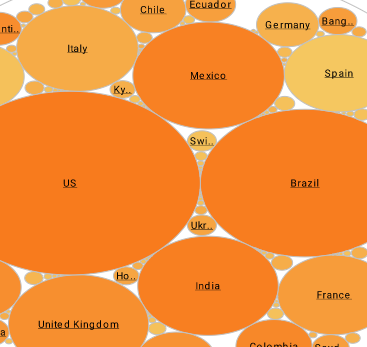What Is Decision AI?
It's not just about personal assistants or autonomous vehicles; artificial intelligence has fundamentally changed how we live and work. Nowadays, businesses and organizations from a variety of industries use AI in their decision-making procedures. Artificial intelligence's subfield known as Decision AI, also known as Decision-making AI, aids in automating decision-making procedures. We'll delve deeper into what Decision AI is and how it functions in this article.
The Definition of Decision AI
Decision AI is the application of AI algorithms to assist humans in making decisions or to make decisions on their behalf. Numerous industries, including healthcare, finance, logistics, and others, can use this technology. Machine learning, data analytics, and natural language processing are all combined in Decision AI. It gathers information from numerous sources, analyzes it, and then provides insights and suggestions for action to decision-makers.
| #1 Ranking: Read how InetSoft was rated #1 for user adoption in G2's user survey-based index | Read More |
How Does Decision AI Work?
Large amounts of data are ingested by Decision AI, which then uses that learning to produce insights and recommendations. The technology analyzes data and makes predictions using a variety of methods, including regression analysis, decision trees, neural networks, and deep learning algorithms. Decision AI systems can learn from both past and present data to make wise choices.
Data collecting, data cleaning, data processing, and data analysis are all phases in the Decision AI process. Based on the data that has been examined, the system then produces insights and suggestions. The insights produced may aid decision-makers in making smarter choices, reducing mistakes, and increasing productivity.
Applications of Decision AI
Decision AI has several uses in a variety of sectors. These are some of the most popular Decision AI applications:
Healthcare:
Decision AI may be used to the healthcare industry to evaluate clinical data, patient data, and medical records to enhance patient outcomes. The technology may assist detect possible health hazards, give individualized treatment options, and anticipate illness development.
Finance:
Decision AI may be used in finance to evaluate financial data, such as stock prices and market patterns, to make wise investment choices. Also, the technology helps lessen the likelihood of financial losses by detecting fraudulent transactions.
Logistics:
Decision Shipping routes, delivery times, and prices may all be optimized with the help of AI in logistics. Technology can also assist estimate demand and change inventory levels appropriately.
Marketing:
Decision Artificial intelligence (AI) may be used in marketing to evaluate consumer data, such as purchasing patterns and preferences, to tailor marketing efforts and raise customer satisfaction.
Advantages of Decision AI
The following are a few advantages of using Decision AI:
Improved Decision-Making:
Decision AI enables decision-makers to swiftly and correctly collect, analyze, and understand massive volumes of data, resulting in better and more informed judgments. This is especially helpful in complicated sectors where there are many variables and considerations to consider. In the healthcare industry, for instance, Decision AI may examine patient data to spot trends and offer more effective treatment choices, while in the financial industry, it can monitor market trends and recommend investments that fit a person's risk profile.
Productivity Growth:
Decision AI automates decision-making processes, freeing up time for decision-makers to concentrate on more complicated tasks. Employees may concentrate on tasks that call for human judgment and creativity with the aid of Decision AI, enabling businesses to get the most out of their labor force.
Personalization:
Customers, patients, and clients may benefit from personalized experiences made possible by Decision AI. Decision AI may provide insights that are tailored to a person's particular requirements by examining data. For instance, Decision AI in e-commerce may use prior purchase information and browsing habits to suggest goods that are likely to interest a certain buyer.
Cost-cutting:
By forecasting demand, streamlining procedures, and spotting inefficiencies, Decision AI may help save expenses. Decision AI, for instance, may examine production data in the manufacturing industry to identify areas where productivity can be increased and costs can be reduced. Decision AI can estimate demand and manage inventory levels in retail, lowering the cost of retaining extra goods. In logistics, Decision AI can optimize delivery routes to save transportation costs.
 |
Read how InetSoft saves money and resources with deployment flexibility. |
Decision AI Challenges
Decision AI has many advantages, but it also has certain drawbacks. Following are some of the fundamental problems with Decision AI:
Bias:
Decision Depending on the data they are educated on; AI systems may be prejudiced. Marginalized groups may suffer as a result of biased judgments that result from this.
Data Protection:
Decision Large volumes of data are necessary for AI systems to operate efficiently, which raises questions regarding data security and privacy.
Lack of Transparency:
Decision Understanding how choices are produced in AI systems may be tricky since they might be difficult to comprehend.
 |
Read the top 10 reasons for selecting InetSoft as your BI partner. |
Future of Decision AI
The future of decision-making AI is promising, with several new advances on the horizon. The creation of increasingly sophisticated algorithms that can analyse data in real-time and provide ever more precise forecasts is one area of research. The creation of decision AI tools that are more affordable for smaller businesses is another area of study. This may help level the playing field by giving smaller firms access to the same data insights and decision-making powers as bigger organizations.



